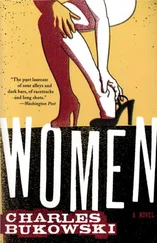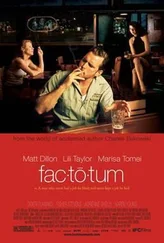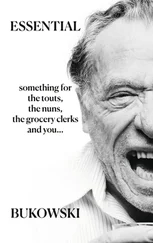“Her own fault.” Newell looked back over his shoulder. A guilty cackle. “What's she doing EXERCISING so late?”
By the end of the next block, Kenny finally was able to breathe, and had stopped looking into the rearview. Perched on the edge of the ripped upholstery, Newell appeared thrilled, absorbed, hunting for another target. His body language encouraged Kenny. He wasn't at all happy about what Newell had just done, what they'd just done. But it looked like the boy was in a better mood. So maybe everything was going to be all right after all. If a little mayhem was what it took to get things back to normal between them, Kenny was up for it.
Maintaining a steady pace of thirty miles an hour and keeping in syncopation with the city's computerized traffic signals, the FBImobile eased through one green light after another, moving though empty intersections. Each new block was burdened with competing shopping plazas and chain stores, every one of them as large as a palace, anchored by twenty-four-hour supermarkets and wide-acred lots. Strip malls were dappled with neighborhood watering holes and their accompanying clusters of parked cars. Fast-food joints infected everywhere you looked. Attacking a drunk or someone in a car was too big a risk, it seemed to Kenny. Even on a major road like this, finding someone else to nail wasn't going to be a piece of cake.
He kept driving and glanced out of the corner of his eye, and saw the boy poised, willfully focused. It seemed to Kenny that Newell's adrenaline rush had given way to a state of perpetual anticipation. Then again, Newell had his own reasons to be searching out there.
Pier 1 Imports and Pottery Barn, Bank of America and Olive Garden, Supercuts and Blockbuster and Kinko's, the stores progressed and repeated, the blocks melded together, kind of like those cartoons where the same rock formations continually looped through the backdrop, but the coyote and roadrunner stayed in their stationary poses. Kenny pointed this out to Newell and received a halfhearted snort in reply. He kept heading north, crossing the two of them over some sort of unofficial line, into a new neighborhood, one of wholesale liquidators, cell phone and beeper emporiums. An all-night laundry center advertised its ten-cent slot machines. A lonely Elks lodge was sandwiched between competing shops that issued payday, title, and signature loans. Some stores, Kenny couldn't tell what they were, since their managers switched off the marquee lights at night, to save on the utility bill. Without all the residual neon, the sky was noticeably darker, giving storefronts the foreboding feel of a run-down warehouse district.
On one lonesome corner, they found a Latino guy entertaining himself with slight, fluid hip-hop movements. “Mofo's packing,” Newell said, waving off the possibility. A block or so later, in front of a Western Union, a grizzled Asian man listlessly pushed a broom over the sidewalk. “Let him alone,” Kenny warned. “He has enough problems.”
Ignoring Newell's cold shoulder and implied disapproval, Kenny guided the steering wheel with one hand, starting the FBImobile into the curving S of a road where every third streetlamp had burned out, been shot out, or had its fuse box gutted — a road whose navigation was second nature to Kenny, its pull all but tangible for him. He passed the exterminator office with the giant plaster cockroach fixed atop its roof, then the Salvation Army clothing store. He noticed Newell was rigid, the extinguisher positioned just beneath the passenger window. The FBI-mobile accelerated through a yellow light, and now the thoroughfare opened onto the clearing of eight-dollar-a-night parking lots. Looking up and ahead, Kenny took in the long dome covering Fremont Street, downtown's few casino towers gathered above the animated rainbow glow.
Temporary shelters of cardboard and plywood were visible in the doorway of a liquor shop. Around the side of a bail bonds place, slumped bodies were covered by giveaway blankets. Here was a three-hundred-pound black woman falling out of a pair of tiny jean shorts. Moving unsteadily on silver high heels, she sauntered in front of a motel office, where three thugs were loitering. Pulling her shorts from her butt, she promptly whirled and flipped off the hooting men.
She would have made a perfect target, could have been the opening Newell had been looking for. Instead the boy tightened in his seat. He brought the canister closer in to his body, an action that reminded Kenny of his aunt years ago — all the times the bus had moved into this territory, the countless times she'd clutched her purse just a little tighter.
“I never come down here,” Newell said.
How to respond? What could Kenny really say, other than, Yeah, you're right ?
For how long now had Kenny himself been put off by downtown's squalor? How many times had he been repulsed by the prospect of coming down here to get his aunt, vaguely afraid, insulted even — as if he were a cut better than this neighborhood, as if life had something better in store for him? How many times had Kenny seen similar things and wanted to disappear?
As he struggled for an answer, Kenny felt more than this, too.
Newell's distaste, his unpleasant manner and assumption of privilege, everything that lay beneath the boy's short declaration and slight motion. It made Kenny defensive, turned him territorial.
Not long ago, Kenny's father had spent a week in one of the motels up ahead. Right after a stint in a halfway house, the old man had gotten himself cleaned up pretty good. Each day, when the pawn shop opened, he made sure he was waiting for Kenny's aunt, hoping to convince her to get Kenny's mom to take him back. Hit by the memory now, Kenny found the story entertaining. With more than a little nostalgia, he recalled how furious the Jew's Daughter had been with Kenny's dad, she already had more than enough bums hanging around. The Jew's Daughter repeatedly ordered him out of the pawn shop, but Kenny's dad wouldn't leave, not without Kenny's aunt agreeing to help with his marital distress, which his aunt most certainly would not do. The whole thing turned into a real mess. Kenny's dad even ended up working at the pawn shop for a little while, sweeping the floor at the end of the day, wiping down the displays, and hosing off the sidewalk — activities that usually were done by a homeless black guy, Loveless, in exchange for five dollars. Of course, when Loveless showed up and saw Kenny's dad doing the tasks that he relied on— five bucks a day going right out the window — the two had almost come to blows, separating only when the Jew's Daughter took out a shotgun. In the end, Kenny's father and Loveless had compromised, splitting the responsibilities. They actually got along pretty well for a while — until the police rounded up all the homeless people and Loveless disappeared, which was a different story.
It would not have been difficult for Kenny to tell Newell about this minor comic nightmare. The stories he had forgotten about the pawn shop would have entertained Newell until puberty kicked in.
But it occurred to Kenny that when Newell said, I never come down here, what he'd really meant to do was ask, Why are we down here?
He'd wanted to know: What are we doing?
What are you going to do to me now?
Downtown was upon them, hotels and towers packed into that dense square district, tour buses parked like gigantic, end-to-end dominos along the right side of the street. A bombastic patriotic jingle blared through the overhead speakers, emanating from the open-air mall of Fremont Street, where the animation loop was running — red and white stars flowing down a sky-blue backdrop, cartoon fighter jets traversing the length of the street. Not too many people were beneath the dome to watch — a lone woman, elderly and stooped, had put down her overstuffed shopping bags and was looking up; a pair of undefined gambling fiends were making their way around a shut-down souvenir cart. A few other miscreants were out there, too, swerving and staggering, the drunken dregs, the losers and the lost and those who knew they would keep on losing, yet were powerless to stop themselves. Newell was watching it all without betraying the slightest emotion, at least he was putting up a good front — Kenny knew him well enough to recognize that's what it was: the boy tightly constricted, visibly failing in his efforts to keep his fears at bay. He was so obviously susceptible, so tangibly vulnerable. Kenny was overcome with how young Newell actually was. His throat caught and he swallowed dryly.
Читать дальше











